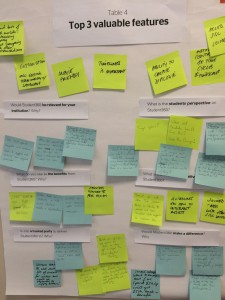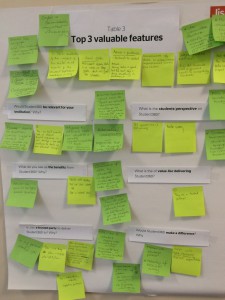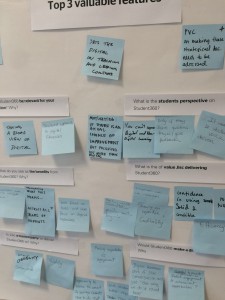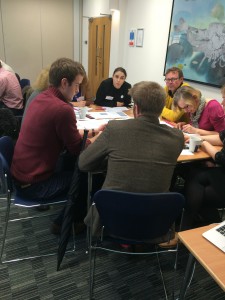On the 4th November 2015, we held a consultation meeting with staff and students representing 15 universities and 2 colleges, on the Jisc student digital experience data service. This meeting builds on earlier consultations we have run, see previous blog post for further details. This is a potential service which are considering developing to support institutions with the collection and analysis of data on student expectations, experiences, attitudes and satisfaction with digital technologies. The service would make it easier for universities and colleges to collect and analyse student expectations and experience data using well-designed and robust questions, and would enable institutions to compare their data internally (for example by faculty or campus) and with other aggregated, anonymised institutional profiles.
Context
We started the day with an overview from Helen Beetham on what a potential service could offer as existing surveys at a national and local level are not focusing on the digital aspects of a learners’ experience. Helen also shared the results of a short survey we asked participants to complete on their existing institutional practices in this area. Respondents felt that existing surveys were not fit for purpose and there was a lack of meaningful data in relation to students’ expectations and experiences to inform their developments of digital strategies. ‘Digital issues becoming more significant to students’ overall experience’ was a key driver for a service of this nature. You can view Helen’s introductory slides here.
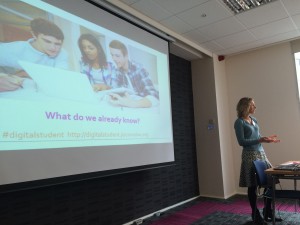
A walk through of the potential service
Livework have been supporting the development of the alpha prototype for the service and Daniel Letts and Cathrine Einarsson presented a lo-fi walkthrough of a possible student digital experience data service. The key elements of the service are:
– Collect and analyse data about student expectations, experiences, attitudes and satisfaction with digital technologies
– Visualise the data easily, allowing you to communicate findings quickly and easily with colleagues
– Use a standardised set of well-designed and robust questions designed by experts
– Ultimately, allow institutions to compare their data both internally (for example by faculty or campus) and externally (e.g. with other ‘statistical neighbour’ anonymised institutional types).
– Possibility to triangulate results with existing data already being collected in your institution.
– Credible evidence on your institution’s current status on digital to make strategic and practical decisions and priorities.
– Concrete feedback to your students on what is happening in the institution in terms of digital developments as a result of their feedback.
You can view the lo-fi walkthrough of the student digital experience data service here.
Participants had the opportunity to feedback their thoughts and reflections on the possible service and share their top 3 features. You can see some of the ideas being gathered in the photos below.
Discussion on question sets
In the afternoon Tabetha Newman led a discussion on the draft set of questions which could be used to elicit students’ responses on their expectations and experiences of technology. The questions have been adapted from the Jisc NUS TSEP Student digital experience benchmarking tool available here.
The questions are focusing on 3 key areas:
– Digital in my institution
– Digital on my course
– My digital life and digital well being
You can view the complete draft question set here. Students and staff were invited to select their top 5 questions and also to discuss what the potential outcomes and actions could arise from these questions.
Challenges?
Dave White closed the day by challenging participants to think about the so what question – how would you take forward the actions arising from gathering this type of data and how would this influence the development of your digital strategy and digital environment. How would you communicate this back to learners?
The challenges raised included:
– how do we motivate students to complete the survey and overcome survey fatigue?
– How do we tailor this for subject differences?
– How do we manage expectations?
– How do we support the development of students’ digital capabilities and is this linked to such a survey?
– How do we join up this data with other data institutions hold?
An inspiring day with valuable contributions and ideas from staff and students who were working alongside to answer the questions posed. Thank you to all who participated. You can view reflections from the day by following #digitalstudent
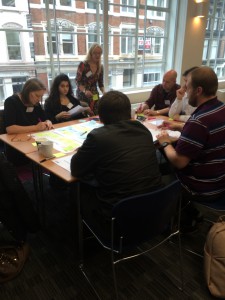
Next steps:
If you are interested in getting involved in a possible pilot in February 2016, please email Sarah.Knight@jisc.ac.uk for further information.
Join the Jiscmail list for the project – http://www.jiscmail.ac.uk/jisc-digitalstudent-data

